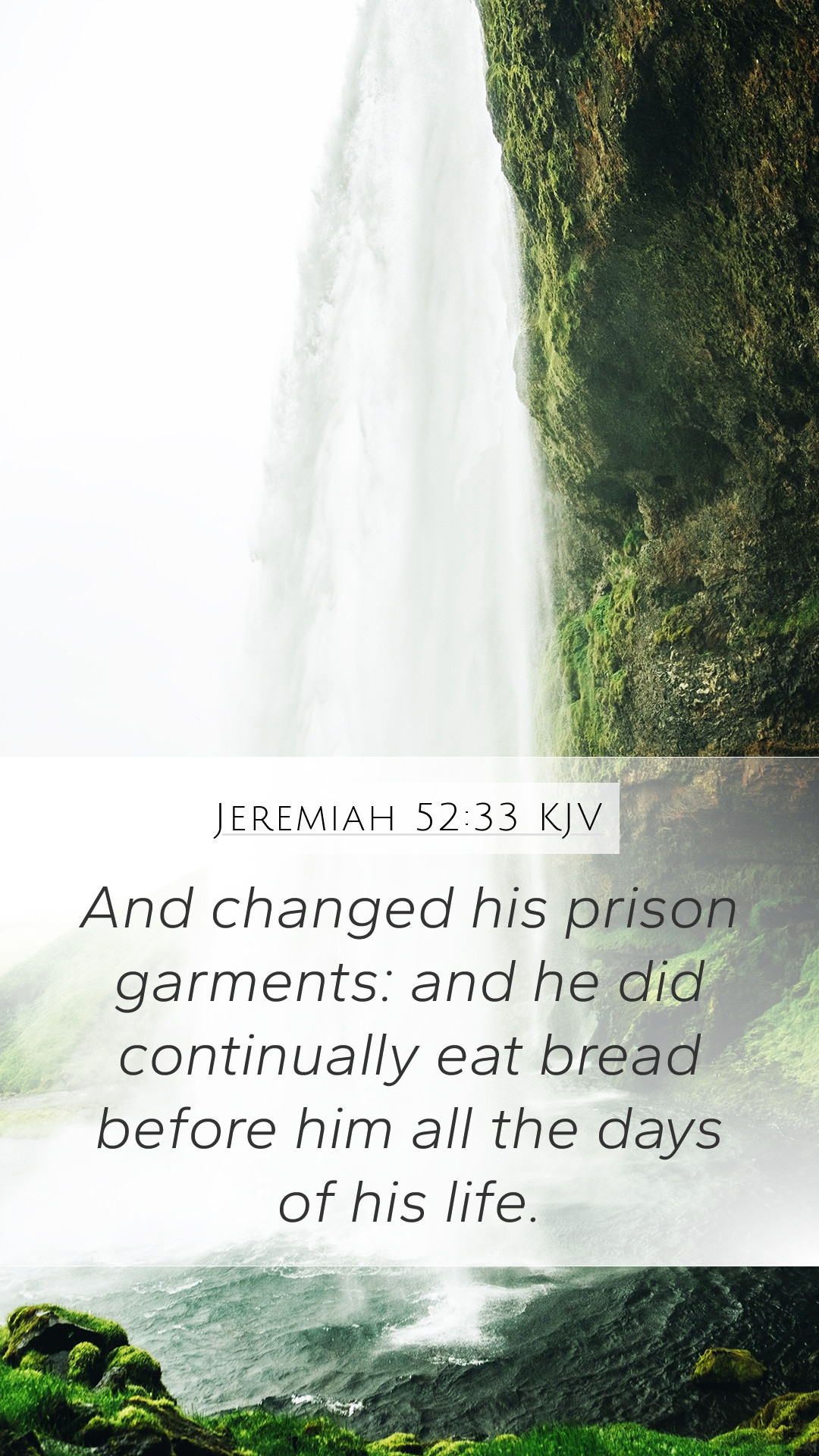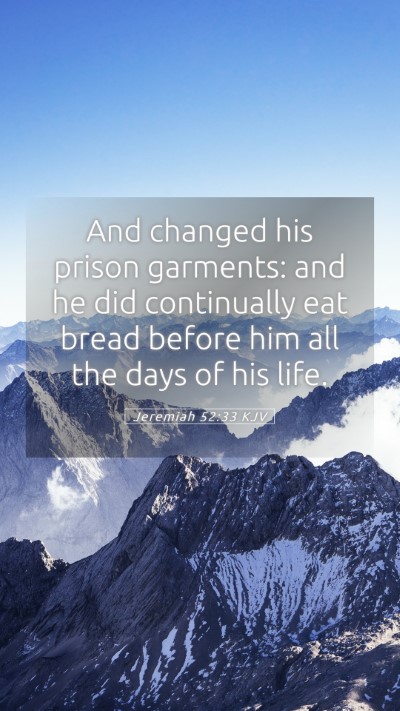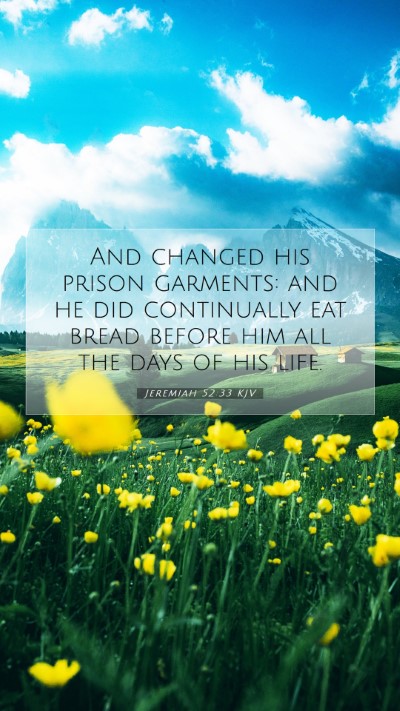Understanding Jeremiah 52:33: A Comprehensive Commentary
In this analysis of Jeremiah 52:33, we delve into the richness of the verse’s meaning through insights gathered from renowned public domain commentaries, such as those by Matthew Henry, Albert Barnes, and Adam Clarke. This comprehensive exploration aims to provide readers with a profound understanding of the scripture, fostering deeper Bible verse meanings and interpretations.
Verse Overview
Jeremiah 52:33 reads: "So Jehoiachin changed his prison clothes. He had meals in the king’s presence regularly all the days of his life." This simple yet profound verse encapsulates themes of restoration, grace, and the transformative power of God's mercy.
Detailed Analysis
The meaning of Jeremiah 52:33 can be unpacked through several key themes:
- Restoration of Dignity:
Matthew Henry highlights that the change of Jehoiachin's prison clothes symbolizes his restoration from a state of shame and humiliation. After years of captivity, Jehoiachin is reestablished to a position of respect.
- Favor in Adversity:
Albert Barnes notes that despite his former captivity, Jehoiachin was granted favor in the eyes of the king of Babylon. This favor represents a shift in circumstances, illustrating how God can intervene in dire situations.
- Gratitude and Provision:
Adam Clarke emphasizes the significance of sharing meals with the king, indicating a provision that surpasses mere survival. This act reflects a deeper relationship and acknowledgment of Jehoiachin's restored status.
Theological Implications
The implications of this verse resonate with broader theological themes:
- God’s Sovereignty:
While the historical context may seem dismal, the restoration of Jehoiachin illustrates God’s ultimate control over human affairs, pointing towards His ability to redeem situations.
- Grace and Redemption:
Jehoiachin's story is a testament to divine grace – transitioning from a state of mourning to dignity, reminiscent of the Christian belief in redemption through faith.
- The Hope of Restoration:
The verse offers hope, presenting a God who is willing to restore and bless, reinforcing the message of hope found throughout the scripture.
Application for Today’s Believers
For those engaged in Bible study or online Bible study groups, this verse provides significant lessons:
- Understanding that no situation is too bleak for God’s intervention can encourage believers during tough times.
- Recognizing the importance of dignity and respect in every stage of life can motivate one to treat others with kindness and compassion, they too may be in a season of restoration.
- Responding to God’s grace with gratitude fosters a spirit of thankfulness, much like Jehoiachin acknowledged the king’s provisions.
Cross References
This verse relates to several other scriptures that enhance its understanding:
- 2 Kings 25:27-30: This passage recounts the release of Jehoiachin and offers a broader narrative of his restoration.
- Jeremiah 30:18-20: Highlights God’s promises of restoration and hope for His people.
- Romans 8:28: Affirms that God works all things together for good, aligning with the theme of divine favor in adversity.
Conclusion
In conclusion, Jeremiah 52:33 serves as a beacon of hope, illustrating the profound changes that can happen when God intervenes in our lives. Through this verse, believers can find encouragement, conduct meaningful Bible study discussions, and apply spiritual insights to daily life situations.


